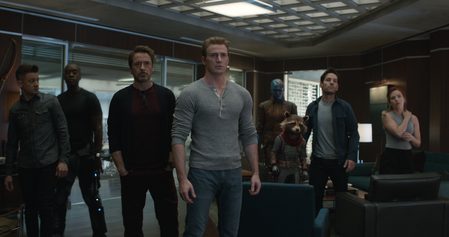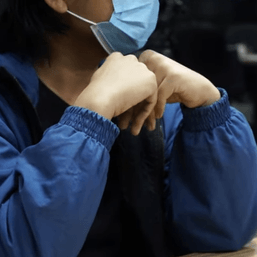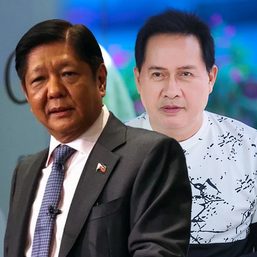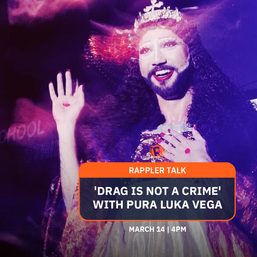SUMMARY
This is AI generated summarization, which may have errors. For context, always refer to the full article.
Deciding on a six-year-old case, the Supreme Court in a recent decision lectured on the Bill of Rights and how it must be respected in the government’s crackdown on drugs, saying it would not let the Constitution be another dead body in the war.
“This Court will not sit idly by and allow the Constitution to be added to the mounting body count in the State’s war on illegal drugs,” the Supreme Court said in an 11-3 decision written by Associate Justice Benjamin Caguioa.
Associate Justices Rosmari Carandang, Amy Lazaro Javier and Mario Lopez dissented, believing that the search on the suspect’s vehicle was a valid search.
The Court ruled that the drug suspect from Tabuk City, Kalinga, who has been in jail for 6 years, was arrested on an invalid search. The Court ruled that the suspects’ constitutional rights against illegal searches and seizures were violated by the police in 2014.
“A battle waged against illegal drugs that tramples on the rights of the people is not a war on drugs, it is a war against the people,” the Court spoke, sending legal circles abuzz on what these could signal about the high tribunal’s view on the powers of the Duterte government.
Two petitions seeking to declare Duterte’s war on drugs unconstitutional are still pending.
Illegal search and anonymous tips
The main issue of the case: was it legal for the police to search the public utility jeepney where the suspect was a passenger to find a tipped off marijuana package?
In 2014, the Kalinga regional police received an anonymous tip made through their hotline that a man would be transporting marijuana from Kalinga to Isabela. The hotline received another text that the man would be on board a jeepney, plate number indicated.
The police watched out for that jeep, stopped it, opened a sack, and found marijuana leaves. The police said the suspect admitted to owning the sack.
The suspect denied this, saying the police told them they were looking for a man wearing fatigue pants, and of the 3 passengers who were, the police picked him.
The Supreme Court ruled that anonymous tips are not valid probable cause to search a moving vehicle. Search of a moving vehicle is one of the grounds for a “reasonable warrantless searches and seizures.”
“The police officer should not adopt the suspicion initiated by another person,” said the Court.
“It is not hard to imagine the horrid scenarios if the Court were to allow intrusive warrantless searches and seizures on the solitary basis of unverified, anonymous tips,” the Court added.
The Supreme Court said policemen can very well make up anonymous tips.
“Unscrupulous law enforcement agents can easily justify the infiltration of a citizen’s vehicle or residence, violating his or her right to privacy, by merely claiming that raw intelligence was received, even if there was really no such information received or if the information was received and fabricated,” said the Supreme Court.
Duterte’s war on drugs
The two pending petitions against Duterte’s war on drugs also ask the same thread of questions:
- Are the drug lists, whose basis were unknown to the subjects, and which were also built on anonymous tips via the infamous drop box, legal?
- Is the knock-and-plead mechanism, more popularly known as Oplan TokHang, legal? Or, is it a form of an illegal search?
- Does Oplan TokHang amount to custodial investigations, and if so, were suspects’ rights violated?
Speaking not on those questions, the Supreme Court said in this decision that “the right against unreasonable searches and seizures will be rendered hollow and meaningless. The Court cannot sanction such erosion of the Bill of Rights.”
In legal chatter, the decision is called an “important” one, and on Twitter, Filipinos rave about an improved opinion on the Supreme Court. One asked: “Did I get it correctly? The Supreme Court just ruled that something like ‘Tokhang’ is unconstitutional?
National Union of Peoples’ Lawyers (NUPL) president Edre Olalia cautioned against high hopes.
“The legal query posed by the particular circumstances of the case is very nuanced. We have to mind the qualifiers for the ruling,” said Olalia.
For example, Olalia said the decision talked only about the search of a moving vehicle, while Oplan TokHang involves homes.
“But in principle, it is a most welcome majority decision for its unequivocal boldness in indicting abuse of power dressing up the demagogic narrative in the drug war,” said Olalia.
In closing, the Supreme Court discussed the Bill of Rights in broad strokes.
“A battle waged against illegal drugs that tramples on the rights of the people is not a war on drugs, it is a war against the people,” the Court said.
“The Bill of rights should never be sacrificed on the altar of convenience. Otherwise, the malevolent mantle of the rule of men dislodges the rule of law.” – Rappler.com
Add a comment
How does this make you feel?











There are no comments yet. Add your comment to start the conversation.